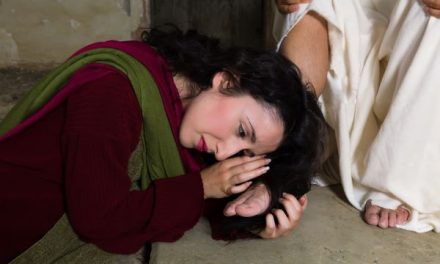Cruelty and Hope
By Andrew Goins
Watauga County
December dies a quick death, filled with laughter, joy and celebration, and most lethal of all, hope. There is no “killing time” in December. There is only giving “life to time” by singing Christmas carols, furnishing evergreens with lights, popcorn, and swarming memories re-presented on swinging bibelots. December is brimming with children because at Christmas we all become children. Perhaps it is because Christmas is the season when we remember our childhood the most; we remember that one snowstorm where the power went out and we stayed up all night playing Monopoly and Isaac, the youngest, actually won and we all went crazy; we remember sitting in a chair by the fire drinking hot chocolate while momma read us a story about a man named scrooge and transformation that overflows into a eucharistic life—a shared life; we remember the year dad lost his job and so we decided to participate in the economy of creativity and frustration and make our own gifts; we remember that one year when grandpa died and momma was depressed and we all tried our very best to make her happy. December is filled with a great and holy remembrance. Remembrance is the avenue to growing young. “Truly I tell you, unless you change and become like little children, you will never enter the kingdom of heaven.” We need to become small again. We need to run again, not because it is healthy or trendy but because we experience a rapture—a thrill of emotion. We need to laugh again, not because it is polite but because of the overabundance of joy that dashes from our lungs to our tongues in joy-full laughter. We need to learn to clap and cry and tell the perpetrator that they hurt our feelings. We need to learn how to grow young.
But December has died and it’s January now. The Christmas tree wilted, the stockings packed and the Christmas presents giddily unpacked. If I am honest with myself, Christmas sickens me. I pick up germs like a first grader eating gum from under his desk. We Christians are the most unsanitary of all. We never wash our hands while singing the ABCs or take our immune support vitamins. We skip our flu shots, touch our faces, and spread all of our germs almost as though we are trying to sicken in the world. But we’re not. We just have the ruthless germ of hope. Just as Christmas haunts us with flickering childhood memories, it also haunts us with the memory of the Spirit hovering over the womb of Mary to create something out of nothing—ex nihilo, where God knits together sinew and ligament, lung and scapula. This knitted creation was born out of a virgin teenager with DNA, 46 chromosomes, eyelashes, and Jewish blood. We remember the Christ who came out screaming bloody murder like the rest of us while the angels swooned the shepherds singing “Glory to God in the highest heaven, and on earth peace to those on whom his favor rests.” It is a coruscant phantasmagoria charged with hope because God entered into what Karl Barth called a “holy mutability” by assuming flesh.
Athanasius, a fourth-century theologian who defended trinitarian orthodoxy and helped form the Nicean creed, brilliantly wrote: “The Word of God came in His own person, that, as He was the image of the Father, He might be able to create humankind afresh after the image.” God the Son recreates humanity by being the true image of God void of evil, so that our evil might be transformed into good. Jesus becomes the perfect image and makes us into the perfect image. Our spirit and soul, body and blood, and all made new. Jesus assumes flesh, defeats death, and promises that what happened to his body will one day happen to our body! The body that could walk through walls, conceal and reveal, disappear, and delight in creation by eating broiled fish will become our body. What hope!
But it is January now and I don’t feel so good. The hope of Christ returning and the New Creation feels abstract and aloof. We go back to work. We take out the trash. We smother the wick of celebration with a lick of the fingers and a quick pinch. Can the joy-charged hope of God lying in a meager manger transfigure this rugged monotony? With discipline, yes. Some people are optimists and some people are pessimists, but no one is instinctually hopeful. The conditions for the hope of New Creation germinating and growing are less than ideal in this world. There are wars and rumors of wars. There is cancer, skinned knees, earthquakes, and bee stings. Hope is a native of heaven and is a transplant to us here. It is used the “higher elevations”. For hope to grow in the harsh climate of evil and brokenness, we must fertilize it with faith that knows Jesus is coming again to make all things new (whether I believe it or not). We must water it with the Word of God. It is in this sense that hope is a discipline. Hope is something we decisively march towards rather than fall into. So, when the temperature is cold and the day dreary, hope. When apathy creeps in, hope. When you return home from visiting loved ones and feel alone, hope. When Hope is a discipline; it is something that must be decisively intended before it becomes an impulse. Against all of the harshness and hurt, monotony and mundane, I dare you to hope.
_________________________________________
Andrew Goins is on staff for a campus ministry at Appalachian State University called Ratio Christi. He also works as a youth leader and worship leader at Arbor Dale Presbyterian Church in Banner Elk.
Andrew is committed to simply and thoroughly loving his wife Bethany, growing in his bible nerdiness, delighting in good books (theology, poetry, and select fiction), music, photography, creation, and in gathering people together for bible studies, a shared meal, or making music.
Read more Christian news HERE.
_________________________________________






